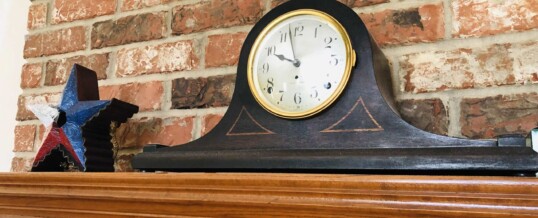
It’s true that one man’s trash is another man’s treasure. And my family liked to go treasure hunting. Often.
You don’t realize how great it is to be a kid in a family that goes to garage sales, estate sales, flea markets, and auctions, until you spend the weekend with a buddy whose family doesn’t do those things.
Regular families are more like my buddy’s. I’m glad my family wasn’t regular.
By the age of 12, I bet that I knew about as much about antiques as some of the appraisers on Antiques Roadshow do today.
Canton, Texas, is one of the world’s largest flea markets. My family went there monthly beginning in 1968. This was when Canton was still an actual flea market.
Today, Canton is more of an arts and crafts venue with prices being at or above retail. When I was growing up, Canton sold junk at reasonable prices.
And that was why it was so great.
Walking the aisles of Canton, you’d see men swapping guns, dogs, or just about anything else. And the booths that lined both sides of your path were filled with legitimate junkers.
Don’t let the term junker fool you. Junking was a term for people who dealt in a little bit of everything. And the vendor absolutely knew his or her stuff.
It takes years of experience to know a little bit about a lot.
Take old clocks for example. There were plenty of vendors who bought and sold old clocks at Canton. But almost all of them not only bought and sold clocks, they could fix them.
In the early 1970’s, my parents bought a mantle clock made by Seth Thomas. They paid $50 for it, which in the early 70s was a decent amount of money.
The significance wasn’t in the cost, or even in the clock itself. It was in how things were back then in the junking community.
When the man sold the clock to my parents, he guaranteed it. That meant, if they ever had a problem with it, they could bring it back to him and he’d fix it.
And he did.
The clock ceased to chime correctly on the half-hour, so my parents brought it back to him at his booth in Canton.
He took it home, fixed it, and brought it back the next month.
Can you imagine that kind of customer service today? Much less, trusting someone to take your item home for a month when you had no idea where they lived?
There was honor among junkers.
It wasn’t just at Canton that I learned about antiques. I learned about them from family members and their friends.
You have to realize that half a century ago, many families, especially ones in the South, acquired other people’s cast offs because it was what we could afford.
Often, furniture, tools, and other items that were bought as secondhand, turned into things of value over time.
My father gave me a pocket watch in the 1960s. It was my first timepiece. He bought it for almost nothing, likely at an auction.
It was called a dollar watch. They were sold at general and hardware stores as a working man’s timepiece. The cool part was that the numbers glowed in the dark.
Another watch I acquired through junking is also a treasure. A $2,000 treasure.
This is an actual case of one man’s trash is another man’s treasure.
I had acquired a console stereo through an estate sale and went to pick it up. When I walked in, family members were emptying kitchen drawers into trash bags. They were also throwing away perfectly good small appliances and silverware.
I stopped them and offered $50 for the trash. They took me up on my offer.
If you’re a junker, this is the pinnacle of junking. You buy a large quantity of items; all bagged up, so you have no idea whether you’re hitting the jackpot, or whether you paid $50 for stuff you’re now hauling to the dump.
With the years of knowledge so generously shared with me by family and others, I began digging through the five, large trash bags.
There were kitchen gadgets, vintage Tupperware, and lots of other things I would later donate to members of our church who could use them.
But in bag number three; I spotted the find of the year. A 1959 Hamilton 14k gold Thin-O-Matic man’s wristwatch.
It was one of the first self-winding watches made in the United States. It sold at the time for $100. An even more amazing price than the $50 mantle clock sold to my parents over a decade later.
When I pulled the Hamilton out of the bag, it awoke from its sleep and immediately began working. The second hand making its way from an unknown period of dormancy to a future of restored time keeping.
I’m wearing the watch as I write this. It holds great value for me and I plan to pass it down to a family member later on.
Every junker believes they’ll one day strike gold that will lead to junker immortality. I haven’t quite reached that level, but I do hold out hope.
Maybe that’ll happen on the next junket this old junker takes.
©2024 John Moore
John’s books, Puns for Groan People and Write of Passage: A Southerner’s View of Then and Now Vol. 1 and Vol. 2, are available on his website TheCountryWriter.com, where you can also send him a message.
JAN
2024
